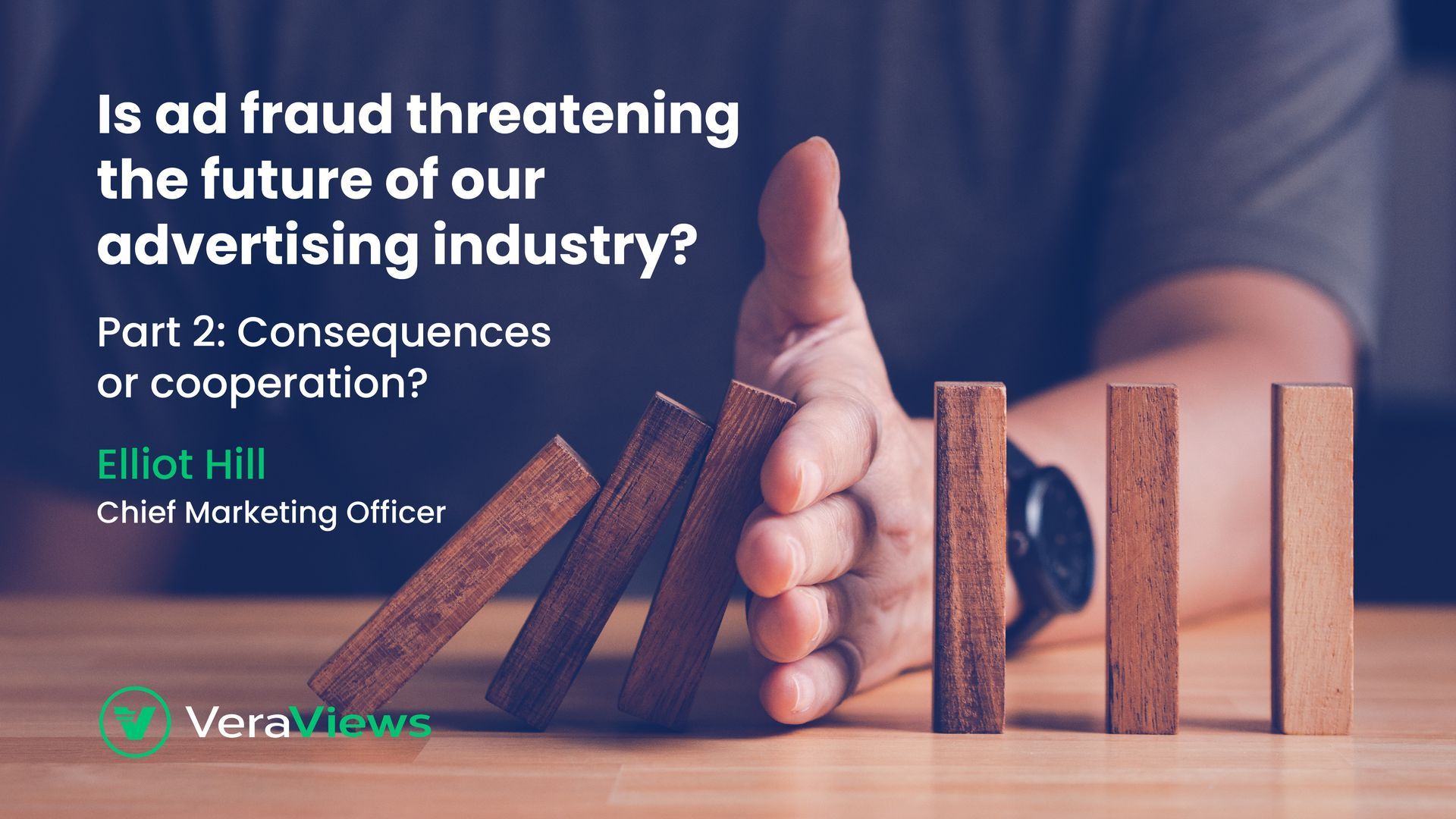Is ad fraud threatening the future of our advertising industry? Part 2

In part one of this piece, we highlighted the scale and impact of ad fraud. Now we’ll cast an eye over the potential consequences of not finding a solution – and how one might be arrived at.
What's at stake if we fail?
Let’s play devil's advocate and imagine that the worst fears of the ad industry are realised. Banks and financial institutions – under mounting scrutiny from the UK Government to regulate the major players as promised in the Online Safety Bill – would begin to place financial limits on ad networks, content delivery networks and publishers, unless they can prove they are filtering invalid traffic (IVT). In the worst cases, where fraud is rampant, financial penalties that rival multi-million antitrust fines could be issued.
In turn, with publishers unable to process new inventory or guarantee an acceptable IVT rate, advertisers' appetites for digital ads in the UK would sour. Instead, they would look to other markets, or shift budgets to more traditional advertising channels, such as print or television. And in this scenario, where publishers and networks can't prove and block IVT, what's at stake for the UK advertising industry?
In the face of rapidly sophisticated ad fraud perpetrated by cybercriminals, experts at Hewlett Packard Enterprise, in association with Politico, have already explored this in an effort to safeguard their clients. In a world where ad fraud offers both the lowest effort and highest reward, their advice was simple: cease paying for online ads altogether, or hold the ad vendors directly accountable for IVT.
This potential loss of revenue for networks and publishers, coupled with the risk of being fined or prosecuted for knowingly or unknowingly being complicit in ad fraud, would put many ad networks, advertisers and publishers out of business. This is the stark reality of the situation.
Enforcement efforts, or lack thereof
But shouldn't it be the fraudsters paying the price for their actions? It certainly should. But to date, neither the UK's National Crime Agency nor the National Economic Crime Centre has followed in the footsteps of its American counterparts and targeted those behind these crimes. To date, there hasn't been a single high-profile criminal proceeding against a bad actor perpetrating ad fraud. In fact, quite the opposite.
A declaration by the IAB on the rise of ad fraud specifically highlighted that little had been done by UK law enforcement, despite clear frameworks for information sharing between the advertising industry and US counterpart agencies. Instead, UK law enforcement has largely shifted the blame onto industry participants, who, despite having ample evidence of criminal elements and a strong desire to pursue them, can't bring proceedings against them without support. The IAB's report concluded that government and law enforcement needed to '...devote sufficient time and attention.' to understand the depth and complexity of the UK's ad fraud landscape - a level of focus which so far has been absent.
It's easy to see how this combination of rampant fraud and a lack of law enforcement intervention could quickly dampen brands' demand for digital advertising and rapidly separate the wheat from the chaff for those participants who can't get a handle on their IVT issues. Collectively, it could spell disaster for the UK advertising industry if ad fraud persists unchecked, which would be a significant blow to an already embattled UK economy.
Beyond ad fraud
This makes the issue of tackling ad fraud at its source critical. And it's not just about protecting advertiser and publisher revenues. Equally important is preventing a crackdown by financial institutions and lawmakers. They are facing mounting pressure to ensure criminal networks are not using ad networks to obfuscate the source of their gains and access legitimate financial infrastructure. It's a scenario that multiple UK industries have faced over the last few years.
However, despite a slew of so-called ad fraud solutions, the problem continues to grow unchecked. But there is light at the end of the tunnel. The same Online Safety Bill that potentially negatively transforms the digital advertising industry as we know it also offers a clear route to a better future by ushering in '...a more transparent, accountable and safer ad market.' But how do we get there?
Transparency and auditability widely exclude many existing solutions that are reliant on trust, with brands needing to rely on campaign statistics supplied by publishers and their advertising networks, and publishers needing to fight advertisers to get paid for their campaigns. With a dearth of satisfactory solutions, very few fully transparent options for identifying and recording invalid traffic have been developed, and log level data and campaign statistics largely remain in ‘black-boxes’ – difficult to verify and check for fraud.
So now is the time for regulators and the industry – from brands and publishers to vendors and intermediaries – to embrace emerging technologies that can help, including, potentially, distributed ledgers. But these technologies will need to be quickly adopted and incorporated into ad tech solutions to solve transparency and auditability for good.
Whatever the solution, one fact remains. We need to act rapidly, decisively and in a united manner to instigate change and tackle the fraud issue before the UK potentially faces the decline of another crucial industry.
Also published in:
Mobile Marketing Magazine



